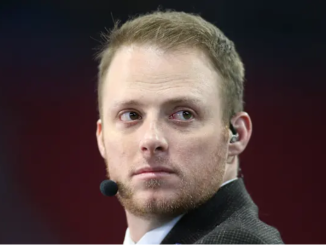
In a quiet Los Angeles chapel, far from the roaring stadiums and flashing cameras that defined his career, Nick Saban, the legendary college football coach, stood as a mourner among many, his presence unmarked by fanfare. On July 22, 2025, the world learned of the passing of Ozzy Osbourne, the iconic frontman of Black Sabbath and a cultural titan whose influence stretched from heavy metal to reality television. Saban, a man known for his strategic brilliance and unrelenting pursuit of excellence, came not to speak but to listen, offering a rare glimpse into a private bond that few knew existed.
Osbourne, who died at 76 in his Buckinghamshire home surrounded by family, left behind a legacy as the “Prince of Darkness,” a pioneer of heavy metal whose music with Black Sabbath reshaped rock history. His death, just weeks after a triumphant farewell concert in Birmingham, England, prompted an outpouring of grief from fans and musicians alike. Tributes poured in from the likes of Elton John, Metallica, and Slash, who celebrated Osbourne’s fearless spirit and genre-defining voice. Yet, among the thousands who gathered at memorials worldwide, Saban’s quiet attendance in Los Angeles stood out as a poignant, unexpected moment.

The connection between Saban and Osbourne was not one forged in public view. Decades ago, long before Saban’s seven national championships with Alabama and LSU, Osbourne had been a silent supporter. In the early days of Saban’s coaching career, when the pressures of building a legacy weighed heavy, Osbourne sent private messages of encouragement. The rock star, known for his wild persona, saw in Saban a kindred spirit—a man who, like him, thrived on defying expectations. These gestures, never publicized, were a source of strength for Saban, a reminder that even in the grind of college football, someone was rooting for him from afar.
Saban’s presence at the chapel was devoid of the trappings of celebrity. No cameras trailed him, no press release heralded his arrival. He arrived alone, dressed simply, and took a seat among fans and mourners. Those who recognized him were struck by his humility. The coach, often seen as an impenetrable figure on the sidelines, was visibly moved, his eyes glistening as he listened to stories of Osbourne’s life—his music, his battles with addiction, his Parkinson’s diagnosis, and his unwavering love for his family. Saban’s silence spoke louder than any speech could. In a world where public figures are often defined by their words, his choice to listen was a testament to the depth of his respect.
In a handwritten note left at the chapel, Saban expressed gratitude for Osbourne’s quiet support. “You believed in me when I was just starting out,” he wrote, “and your music gave me strength to keep going. Rest in peace, my friend.” The note, discovered by a fellow mourner, quickly spread across social media, offering a rare window into Saban’s personal side. Fans of both men marveled at the unlikely connection—a coach rooted in discipline and a rocker synonymous with rebellion, united by mutual respect.
Osbourne’s farewell concert on July 5 at Birmingham’s Villa Park, where he reunited with Black Sabbath bandmates Tony Iommi, Geezer Butler, and Bill Ward, had been a celebration of his enduring legacy. Despite his Parkinson’s limiting his mobility, Osbourne performed from a bat-themed throne, delivering classics like “Iron Man” and “Paranoid” to 45,000 fans. Saban, though not present, had watched the livestream, moved by Osbourne’s resilience. That performance, now Osbourne’s last, made Saban’s chapel visit all the more meaningful.
The tributes to Osbourne spanned the globe, from flowers at Birmingham’s Black Sabbath Bridge to candles at the Hollywood Walk of Fame. Yet Saban’s quiet gesture resonated deeply, a reminder that even legends mourn in their own way. His attendance was not about headlines but about honoring a man who had touched his life in ways few could have imagined. In that Los Angeles chapel, two worlds—football and rock—met in silence, bound by a friendship that transcended fame.

Be the first to comment